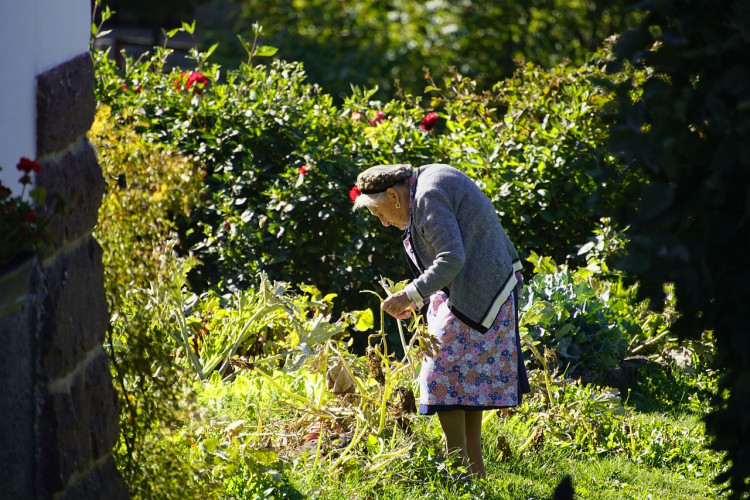Gardening, often seen as a pleasant pastime, has proven to offer substantial mental and physical health benefits. Recent studies underscore the profound impact that tending to a garden can have on overall well-being, making it an activity worth considering for everyone, regardless of their green thumb status.
Mental Health Benefits of Gardening
A 2018 analysis from the United Kingdom revealed that spending time in gardens and green spaces significantly improves mental and physical health. This comprehensive study highlighted several benefits, including increased exposure to vitamin D, enhanced social interaction through community gardening, and the physical labor involved, which can lead to better balance, strength, and dexterity.
A 2021 study specifically focused on dementia patients found that gardening therapy positively affected their engagement levels, reduced agitation and depression, and potentially decreased their need for medication. These findings align with a broader 2024 review published in Systematic Reviews, which concluded that gardening and horticultural therapy enhance mental well-being, quality of life, and overall health.
Dr. Andrea Papa, a psychiatrist and chief medical officer at Advantage Behavioral Health, emphasizes the therapeutic nature of gardening. She notes that the focus required for gardening helps individuals stay present, reducing stress related to other life aspects. "You are out of your head, you're not necessarily thinking about what happened at work - you're at peace with yourself," Papa explains.
Moreover, the mental health benefits extend beyond individual efforts. Joining community gardens fosters collaboration and friendship, which are vital for mental health. "As humans, we crave human contact. Gardening with others can be incredibly beneficial," Papa adds.
Physical Health Benefits of Gardening
Gardening isn't just good for the mind; it's also excellent for the body. The physical activity involved in gardening, such as pulling weeds, planting seeds, and digging, can significantly improve cardiovascular health. Dr. Gerda Maissel, founder of the patient advocate service My MD Advisor, states, "Cardiovascular health improves with any exercise that repeatedly causes heart rate elevations. Improved cardiovascular health reduces the risk of strokes and heart attacks."
The caloric burn from gardening varies depending on the intensity of the activity, with vigorous digging burning more calories than lighter tasks like trimming flowers. On average, gardening is considered a low to moderate activity, burning approximately 90 to 160 calories per hour. This physical activity can also lead to better sleep and weight management.
Dr. Shivani Amin, who specializes in functional medicine, highlights the importance of regular movement, which gardening naturally incorporates. "Our bodies are not designed to be sitting at our computers for hours on end. Gardening involves everyday movements that contribute to improved physical health," she explains. Tasks such as digging, weeding, or carrying heavy loads can specifically strengthen the back, shoulders, arms, and legs.
Furthermore, having a garden can improve dietary habits. Dr. Raj Dasgupta, a physician specializing in internal medicine, points out that those who grow their own food are more likely to consume fresh, organic produce, reducing their intake of pesticides and chemicals. "What's available to you, you're more likely to eat," Amin concurs, emphasizing the health benefits of homegrown vegetables and fruits.
Long-Term Cognitive Benefits
A groundbreaking study by Edinburgh University has shown that gardening can help keep the brain healthy into old age. The study tracked hundreds of Scots and their lifestyles over nearly a century, finding that time spent gardening might protect against dementia up to the age of 80, regardless of wealth and education.
The research, part of the Lothian Birth Cohorts, involved participants taking intelligence tests at age eleven and again in later life. The findings showed that those who gardened frequently had better cognitive abilities as pensioners compared to their childhood scores. In contrast, those who never gardened or did so rarely had lower cognitive scores in old age.
Alzheimer Scotland's executive lead on brain health and innovation, Gillian Councill, describes the findings as "encouraging." Councill notes that gardening can increase hand strength, which has been shown to boost brain health. Additionally, growing your own food can lead to a healthier diet, another key factor in maintaining cognitive function.
Dr. Janie Corley, the study's lead author, suggests that the mentally stimulating nature of gardening, involving complex cognitive processes such as memory and executive function, contributes to brain reserve even in older age. Denis Barrett, a 76-year-old gardener, echoes this sentiment, stating that gardening keeps him mentally active and physically healthy.






